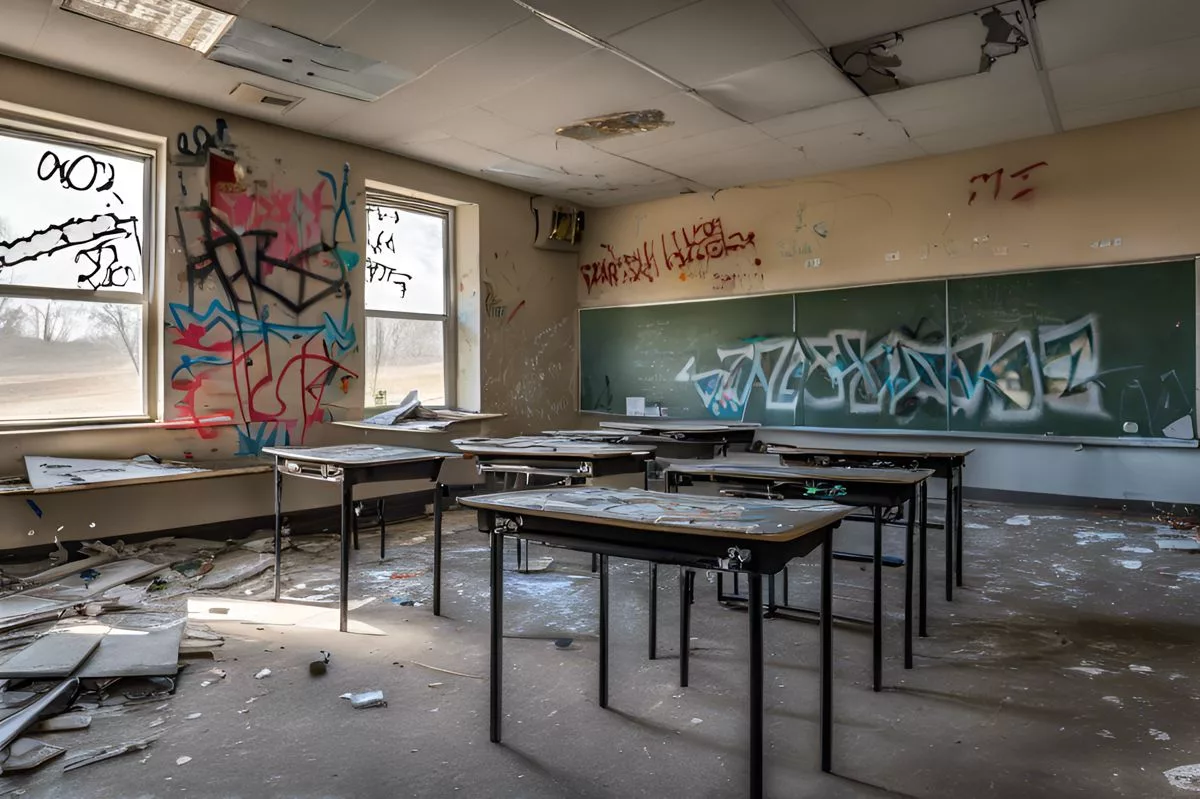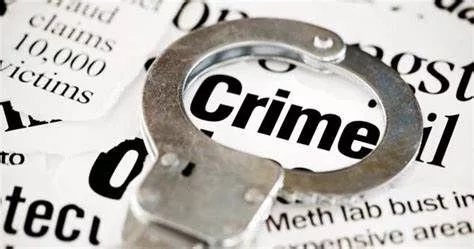Uitzig Secondary School in Cape Town, South Africa, was systematically stolen, piece by piece, until only its foundation was left standing. The thieves stole everything from construction materials and plumbing to electrical installations and furniture. This larceny highlights the need for community vigilance and effective law enforcement to combat rising crime rates in public schools in the region. The story of Uitzig Secondary serves as a powerful reminder of the ongoing socio-economic issues that persist in certain parts of the world and the need for substantial support and resources for those battling addiction.
Uitzig Secondary School in Cape Town, South Africa, was systematically dismantled and stolen, piece by piece, until only its foundation was left standing. The entire infrastructure, ranging from construction materials and plumbing to electrical installations and furniture, was stolen. This larceny surpassed a simple robbery of a few bricks and items of furniture. The thieves were thorough in their commitment to profit from their grim exercise.
A Peculiar Tale from The Educational Field
Among tales that seem impossible to believe, the story of Uitzig Secondary School in Cape Town, South Africa, certainly merits recognition. It’s an account that is at once remarkable and heart-wrenching, charting an unlikely trajectory from a thriving educational establishment to an empty parcel of land, devoid of any remnants of its past magnificence.
In 2022, Uitzig Secondary found itself beset by a predicament that baffled many. The entire school had been systematically dismantled and stolen, piece by piece, until only its foundation was left standing. Regrettably, this wasn’t a sudden event but rather a slow, agonizing decline reflective of the struggles of the local community.
The school had been ruled as structurally dangerous and a breeding ground for ‘gangsterism and vandalism’ by the Department of Education in 2019, thus leading to its closure. Although this decision was compulsory, it left the establishment susceptible to predatory thieves who saw potential in its deserted hallways and classrooms.
The Unfathomable Grand Heist
The larceny at Uitzig Secondary far surpassed a simple robbery of a few bricks and items of furniture. The thieves carried out a comprehensive plundering of the entire infrastructure, ranging from construction materials and plumbing to electrical installations and furniture. The robbers were thorough, in both a literal and figurative sense, in their commitment to profit from their grim exercise.
After the school’s disappearance, the community was left dumbstruck. They attributed this extraordinary thievery to ‘drug addicts’ in dire need of funds to sustain their addictions. Regardless of its accuracy, this allegation highlighted the social issues that had been afflicting the region.
The transformation of Uitzig Secondary is blatant. Sequential photographs of the school taken over a few years display a dramatic shift from a fully operational building to a vacant lot. The impressive entrance, the reception area, the five classroom blocks, and the two restrooms were all seized. The school had morphed into a spectral representation of its past, a haunting attestation to unchecked lawlessness.
Insights from Inside and A Call to Action
A previous caretaker of the school, who opted for anonymity, narrated the school’s swift descent into oblivion to the Daily Mail. He mentioned, “Students grew fearful, and vandalism became a constant issue. The school rapidly deteriorated, and eventually, it was completely shut down. I’m not exaggerating when I say that right after its closure, the thieves swooped in and took the school apart brick-by-brick, window-by-window, until there was nothing left.”
This unsettling account of Uitzig Secondary School is sadly not a standalone event. Public schools in the Western Cape are increasingly becoming prime targets for criminals. This trend necessitates immediate action. The public is urged to report any suspicious behavior around these institutions, effectively serving as eyes and ears on the ground. Even the slightest piece of information can trigger law enforcement to intervene, investigate, and apprehend these criminals.
The narrative of Uitzig Secondary School, however tragic, serves as a powerful signal of the ongoing socio-economic issues that persist in certain parts of the world. It’s a wake-up call underscoring the need for community vigilance, effective law enforcement, and crucially, substantial support and resources for those battling addiction.
Learning Lessons from Uitzig Secondary’s Story
As we delve into this narrative, we’re reminded of Desmond Tutu’s poignant words: ‘There is only one way to eat an elephant: a bite at a time.’ Analogously, the restoration of safety and integrity to these educational establishments can also be achieved incrementally.
Today, Uitzig Secondary stands as a grim testament to the damaging repercussions of crime and societal neglect. Its absence is deeply felt within the community, leaving a vacuum once filled with the aspirations and dreams of its students. Nonetheless, its memory continues to fuel a steadfast determination to prevent a recurrence of such a catastrophe. As we ponder its story, we’re reminded of the urgent necessity for united action, empathy, and vigilance in the face of adversity. As the tale of Uitzig Secondary continues to unfold, it evolves into a potent narrative of resilience and transformation that resonates worldwide.
1. What happened to Uitzig Secondary School in Cape Town, South Africa?
Uitzig Secondary School in Cape Town, South Africa, was systematically stolen, piece by piece, until only its foundation was left standing. The thieves stole everything from construction materials and plumbing to electrical installations and furniture.
2. Why did the school become a target for theft?
The school had been ruled as structurally dangerous and a breeding ground for ‘gangsterism and vandalism’ by the Department of Education in 2019, thus leading to its closure. Although this decision was compulsory, it left the establishment susceptible to predatory thieves who saw potential in its deserted hallways and classrooms.
3. Who were the suspected perpetrators of the theft?
The community attributed the extraordinary thievery to ‘drug addicts’ in dire need of funds to sustain their addictions.
4. What can be done to prevent similar incidents from occurring in the future?
The trend of public schools becoming prime targets for criminals necessitates immediate action. The public is urged to report any suspicious behavior around these institutions, effectively serving as eyes and ears on the ground. Even the slightest piece of information can trigger law enforcement to intervene, investigate, and apprehend these criminals.
5. What are some of the ongoing socio-economic issues that persist in certain parts of the world that are highlighted by this story?
The narrative of Uitzig Secondary School serves as a powerful signal of the ongoing socio-economic issues that persist in certain parts of the world. It’s a wake-up call underscoring the need for community vigilance, effective law enforcement, and crucially, substantial support and resources for those battling addiction.
6. What lessons can be learned from Uitzig Secondary’s story?
The restoration of safety and integrity to these educational establishments can be achieved incrementally through united action, empathy, and vigilance in the face of adversity. The tale of Uitzig Secondary serves as a potent narrative of resilience and transformation that resonates worldwide.











